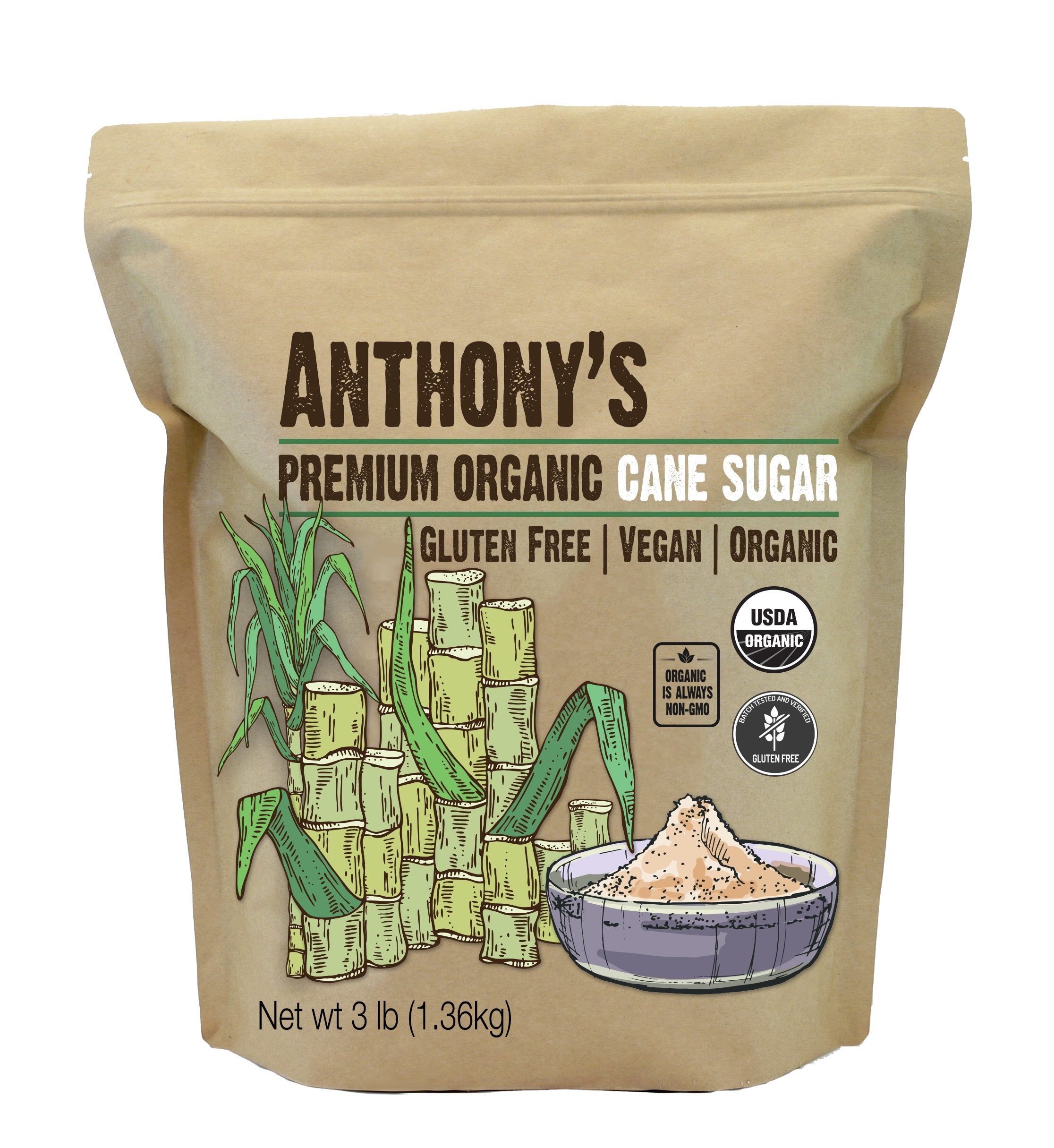The Scientific Research Behind Cane Sugar Processing: Just How Sweet Taste is Refined
The Scientific Research Behind Cane Sugar Processing: Just How Sweet Taste is Refined
Blog Article
A Comprehensive Overview of the Health and Economic Ramifications of Walking Stick Sugar Handling on Neighborhood Neighborhoods
Walking cane sugar processing plays a pivotal duty fit the economic landscape of regional communities, using employment chances and promoting secondary markets. Nevertheless, the health and wellness implications connected with high sugar usage can not be neglected, as they add to climbing prices of weight problems and diabetes mellitus. This nuanced dynamic welcomes an essential evaluation of just how communities can maximize financial gains while resolving journalism health obstacles they deal with. The exploration of lasting techniques and educational campaigns might just hold the secret to resolving these conflicting interests. What strategies might communities apply to achieve this equilibrium?
Financial Benefits of Walking Cane Sugar Processing
Walking cane sugar processing supplies considerable economic advantages that extend past the instant farming field. The farming and handling of sugarcane create countless task opportunities, from farming to manufacturing and circulation. This employment generation not just supports regional economies yet also cultivates community growth by providing steady income sources for family members.
Furthermore, the sugar sector stimulates supplementary businesses, including transport, tools supply, and packaging solutions (Cane Sugar Processing). As these fields grow, they add to an extra robust economic framework, boosting overall neighborhood strength. The export potential of processed walking stick sugar better magnifies financial benefits, placing areas as affordable players in worldwide markets
Financial investment in modern processing facilities can cause raised productivity and efficiency, thus lowering waste and maximizing source use. This shift not only benefits the regional economic situation however additionally supports sustainability initiatives by decreasing environmental effects.
Additionally, the profits generated from walking cane sugar handling can be reinvested in neighborhood framework, education and learning, and medical care, advertising all natural area development. On the whole, the financial advantages of walking cane sugar handling are diverse, giving a structure for withstanding success in agricultural regions.
Health Risks Connected With Sugar Usage
Too much sugar consumption poses substantial wellness dangers that call for serious focus. High intake of sugarcoated, specifically from refined beverages and foods, has actually been connected to various health and wellness problems. Among one of the most pressing concerns is excessive weight, as sweet diets add to an increased caloric consumption without providing necessary nutrients. This extra can result in metabolic problems, consisting of type 2 diabetes mellitus, which has become significantly common in both grownups and kids - Cane Sugar Processing.
In addition, high sugar usage is connected with heart disease. Raised blood sugar level levels can result in insulin resistance, a forerunner to various heart-related problems. Additionally, sugar can have destructive impacts on dental wellness, leading to dental caries and periodontal condition, as bacteria in the mouth thrive on sugar, creating acids that deteriorate tooth enamel.
Additionally, arising research suggests a prospective web link between high sugar consumption and psychological wellness disorders, such as anxiety and stress and anxiety. As communities grapple with these health and wellness risks, it becomes vital to promote understanding and motivate healthier nutritional choices. Addressing sugar intake is vital not only for specific health however likewise for the overall health of neighborhood neighborhoods, emphasizing the need for thorough public health strategies.
Environmental Impacts of Sugar Manufacturing
Often ignored in conversations about sugar's effects is the considerable ecological effect of sugar production. The growing of sugarcane usually necessitates comprehensive land use, bring about logging, loss of biodiversity, and disruption of local ecological check this communities. The conversion of forests and wetlands right into sugar vineyards can lead to habitat destruction, harmful many types and changing environmental balance.
Additionally, sugar manufacturing is resource-intensive, consuming significant quantities of water for irrigation. This can result in exhaustion of regional water sources, negatively impacting both farming techniques and neighborhood accessibility to tidy water. Furthermore, making use of chemical plant foods and pesticides in sugarcane farming can add to dirt deterioration and water pollution, as overflow from these chemicals enters nearby rivers and lakes, influencing aquatic life and human health and wellness.
The ecological footprint encompasses the processing stage, where power consumption and waste generation additional intensify eco-friendly issues. Air pollution from shedding sugarcane areas, along with greenhouse gas exhausts, add to environment modification. Because of this, the environmental effects of sugar manufacturing warrant significant consideration, prompting stakeholders to embrace even more lasting practices to mitigate these damaging impacts on local communities and areas.
Task Creation and Neighborhood Development
The environmental obstacles posed by sugar manufacturing are frequently counteracted by its possibility for economic advantages, specifically in job development and area development. The cane sugar market acts as a considerable resource of work in many country locations, providing jobs throughout various skill levels, from farming labor to processing and distribution functions. This employment not just sustains specific families however additionally adds to the overall economic vigor of neighborhood areas.
Furthermore, the establishment of sugar processing facilities stimulates ancillary businesses, such as transportation solutions, tools supply, and maintenance carriers. As these businesses flourish, they produce added work and strengthen neighborhood economies. The revenue produced from the sugar market likewise brings about raised tax obligation earnings, which can be reinvested into social work such as health care, infrastructure, and education and learning development.
Additionally, the sugar market typically engages in community development campaigns, such as sustaining neighborhood institutions and health and wellness programs, consequently improving the lifestyle for homeowners. By promoting solid neighborhood connections and promoting financial growth, the cane sugar handling industry plays a vital function in uplifting local populaces, making it an important component of lasting growth approaches in sugar-producing areas.
Balancing Health And Wellness and Economic Development
In browsing the complexities of walking stick sugar handling, a vital obstacle lies in stabilizing health considerations with financial development. The sugar learn the facts here now industry dramatically adds to local economies by producing jobs, boosting relevant industries, and boosting tax revenues. Nonetheless, the health implications connected with excessive sugar usage can bring about persistent illness such as weight problems, diabetes mellitus, and cardiovascular problems, which can burden public health and wellness systems and diminish workforce productivity.

Additionally, governing frameworks can play an essential role in directing sector practices in the direction of more health-conscious and lasting approaches. By fostering partnership between federal government bodies, health and wellness companies, and the sugar market, neighborhoods can navigate the dichotomy of health and wellness and financial development, making certain that the advantages of cane sugar handling are equitably shared while focusing on public wellness.
Verdict
In final thought, the handling of cane sugar presents both significant financial advantages and noteworthy health risks for local areas. While it cultivates work development and promotes regional development, the involved wellness concerns, specifically concerning weight problems and diabetes mellitus, demand a cautious balancing act. By promoting responsible intake and investing in area education and learning and lasting methods, it is feasible to take full advantage of economic benefits while minimizing unfavorable health effects, consequently making sure a much healthier future for regional populaces.
In addition, sugar can have damaging impacts on dental health and wellness, resulting in tooth cavities and periodontal illness, as germs in the mouth prosper on sugar, generating acids that wear down tooth enamel.
Resolving sugar consumption is vital not just for private health and wellness but additionally for the overall wellness of local areas, stressing the demand for detailed public health methods.
Frequently forgotten in discussions about sugar's effects is the significant ecological impact of sugar manufacturing. The health and wellness implications connected with excessive sugar usage can lead to chronic conditions such as weight problems, diabetes, and cardiovascular problems, which can problem public health systems and decrease labor force productivity.

Report this page